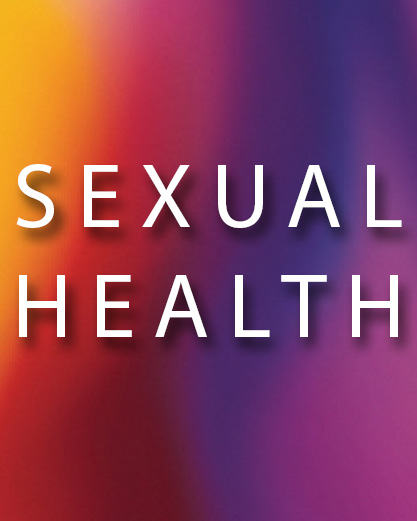
Sexual Health
Volume 22 Number 3 2025
Newer point-of-care tests for sexually transmitted infections (STIs) have become increasingly available since the COVID-19 pandemic. Little is known regarding the use of these tests in clinical practice as well as the potential challenges of integrating them into care. Survey data from individuals attending an international STI conference is presented, highlighting practice trends and barriers to implementation.
It is important to engage culturally and linguistically diverse sex industry workers with sexual health care. A large sexual health service has piloted the implementation of WeChat and LINE digital platforms to enhance outreach to Thai- and Chinese-speaking sex industry workers operating in inner-city Sydney. Results indicated that the platforms are both effective in reaching new clients and are utilised by existing sex industry worker clients of the sexual health service for service navigation and booking appointments.
This position statement from the New Zealand Sexual Health Society outlines the background, process and recommendations of a cross-sectoral meeting on doxycycline prophylaxis to prevent bacterial STIs. The New Zealand Sexual Health Society recommends that this prevention strategy be considered as part of a comprehensive STI prevention approach, and this statement provides guidance for clinicians in Aotearoa New Zealand on when to consider and how to prescribe doxycycline prophylaxis. STI diagnostic considerations, and monitoring and surveillance are discussed.
Middle-income countries that are transitioning away from external donor funding for HIV services targetting key populations need to have policies in place and domestic resources allocated to continue providing the services sustainably without disruption. We analyzed and presented the findings from the surveys and key informant interviews of diverse stakeholders to understand barriers to domestic funding for key population–led HIV programming in four selected countries (Bhutan, Mongolia, the Philippines, Sri Lanka) in Asia that are scheduled for transition.
SH24210 Abstract | SH24210 Full Text | SH24210PDF (243 KB) | SH24210Supplementary Material (232 KB) Open Access Article
Studies have shown that adolescents and young adults in Turkey face various difficulties in sexual and reproductive health. It has been observed that there is a need for a scale to assess the sexual and reproductive health empowerment of adolescents and young adults in Turkey. This study found that the Sexual and Reproductive Health Empowerment Scale for Adolescents and Young Adults is a valid and highly reliable instrument for the Turkish population.
SH24247Preferences and willingness to use pre-exposure prophylaxis for HIV among men who have sex with men in mainland China and Hong Kong
 , Jason J. Ong
, Jason J. Ong  , Heather-Marie Schmidt
, Heather-Marie Schmidt  , Curtis Chan
, Curtis Chan  , Benjamin R. Bavinton
, Benjamin R. Bavinton  , Kimberly Elizabeth Green
, Kimberly Elizabeth Green  , Nittaya Phanuphak
, Nittaya Phanuphak  , Midnight Poonkasetwattana, Nicky Suwandi, Doug Fraser, Weiming Tang
, Midnight Poonkasetwattana, Nicky Suwandi, Doug Fraser, Weiming Tang  , Michael Cassell, Hua Boonyapisomparn, Edmond Pui Hang Choi
, Michael Cassell, Hua Boonyapisomparn, Edmond Pui Hang Choi  , Lei Zhang
, Lei Zhang  and Warittha Tieosapjaroen
and Warittha Tieosapjaroen
PrEP uptake remains low among MSM in mainland China and Hong Kong. This study found that oral PrEP was most preferred, with MSM in mainland China more likely to use on-demand PrEP, whereas MSM in Hong Kong were more likely to use monthly oral PrEP. These findings highlight the need for specific strategies to improve PrEP uptake and address local social and behavioural influences on HIV prevention.
This article belongs to the collection: Awareness, Preferenes, and the Use of PrEP in Asia Among Men Who Have Sex With Men Findings from the PrEP APPEAL Study.
SH24247 Abstract | SH24247 Full Text | SH24247PDF (3.3 MB) | SH24247Supplementary Material (526 KB) Open Access Article
Despite evidence that many middle-aged and older adults in the UK remain sexually active, their access to and uptake of sexual health services has been underestimated. Our exploration of their lived experiences revealed physical barriers and the stigma around their sexual health and of being perceived as asexual by health professionals. To improve service provision and access, a multi-faceted approach is needed, including enhanced training for healthcare providers, further research, and supportive policies.
This article belongs to the collection: Sexual health among older adults: A multi-disciplinary collection.
SH24093 Abstract | SH24093 Full Text | SH24093PDF (1 MB) | SH24093Supplementary Material (1.5 MB) Open Access Article
SH24136Awareness and willingness toward doxycycline post-exposure prophylaxis use for bacterial sexually transmitted infections among men who have sex with men
 , Kuan-Yin Lin, Hsin-Yun Sun, Yu-Shan Huang, Wang-Da Liu, Yu-Chung Chuang, Po-Hsien Kuo, Sung-Hsi Huang, Kai-Hsiang Chen, Aristine Cheng, Wang-Huei Sheng, Szu-Min Hsieh, Sung-Ching Pan, Un-In Wu, Szu-Ting Huang, Tzong-Yow Wu, Wen-Chun Liu, Pei-Ying Wu, Yu-Zhen Luo, Hsi-Yen Chang, Ling-Ya Chen
, Kuan-Yin Lin, Hsin-Yun Sun, Yu-Shan Huang, Wang-Da Liu, Yu-Chung Chuang, Po-Hsien Kuo, Sung-Hsi Huang, Kai-Hsiang Chen, Aristine Cheng, Wang-Huei Sheng, Szu-Min Hsieh, Sung-Ching Pan, Un-In Wu, Szu-Ting Huang, Tzong-Yow Wu, Wen-Chun Liu, Pei-Ying Wu, Yu-Zhen Luo, Hsi-Yen Chang, Ling-Ya Chen  , An-Ting Peng, Pei-Yu Wang, Guei-Chi Li and Chien-Ching Hung
, An-Ting Peng, Pei-Yu Wang, Guei-Chi Li and Chien-Ching Hung 
Using doxycycline after exposure (doxycycline post-exposure prophylaxis) can prevent men who have sex with men from contracting STIs. A study in Taiwan found that these men were open to using doxycycline post-exposure prophylaxis, especially when they felt that they might be at risk of STIs. It is important to understand their readiness to identify behaviors that increase the chances of contracting or transmitting STIs, and to offer education and support to help them use doxycycline post-exposure prophylaxis effectively.
SH24136 Abstract | SH24136 Full Text | SH24136PDF (905 KB) | SH24136Supplementary Material (703 KB) Open Access Article
This study sheds light on the experiences of HIV self-testing and secondary distribution among Chinese gay, bisexual, and other men who have sex with men. Utilizing the photovoice methodology, the research reveals how systemic discrimination and AIDS-phobia affect their decision-making. The findings emphasize the need for community engagement and supportive policies to enhance HIV self-testing uptake, highlighting the broader implications for public health and inclusivity in China.
Since Queensland’s decriminalisation of abortion in 2018, societal views have shifted, seeing abortion as a healthcare standard rather than a crime. However, most abortions are still privately funded in Australia. Cairns Sexual Health Service, a public provider, offers affordable, timely abortions without a GP referral. This paper examines clinical practice from 2019 to 2023, detailing the demographics and outcomes of those accessing the service. It also compares these results to a 2011–2015 review, prior to decriminalisation.
This study highlights the importance of community involvement in HIV research, particularly among marginalized groups, such as young gay, bisexual, and queer men in Singapore and Malaysia. A collaborative project between the National University of Singapore and a local organization, RainbowAsia, used a citizen-led approach to overcome funding challenges and stigma. The research focused on issues, such as mental health and relationships, relying on community resources and volunteers. The proposed framework includes eight phases for effective collaboration, aiming to transform research into impactful community programs.
SH24196 Abstract | SH24196 Full Text | SH24196PDF (1 MB) | SH24196Supplementary Material (1.7 MB) Open Access Article
This survey of 27 Australian sexual health clinics about their services in 2023 found they offered a median of 35 bookings each day, but only a median of 10 walk-in consultations for symptomatic patients. Only approximately half of clinics could provide services to all individuals with symptoms who attended each day. The catchment population of the clinics ranged from as low as 3696 to a maximum of 5 million. Turing away individuals with symptoms will impede effective STI control.
SH25026 Abstract | SH25026 Full Text | SH25026PDF (358 KB) Open Access Article
The ‘Girls’ Voices Curriculum’, a 10-week girl-led advocacy program, was piloted in Sindh, Pakistan, to empower underprivileged adolescent girls. Evaluated for cultural acceptability with 86 educators, it showed promise in fostering gender equality, leadership, and problem-solving skills. Efforts continue to integrate and scale the curriculum for broader impact.
STIs remain a key concern in the context of HIV biomedical prevention. In a study of 343 male HIV-serodiscordant couples in Australia, Brazil and Thailand, we found higher rates of STI diagnosis for HIV-positive partners compared with their HIV-negative regular partners, and couples were typically not diagnosed with an STI together. HIV transmission risk has been eliminated for HIV-serodiscordant couples where the HIV-positive partner has a supressed viral load; however, other STIs continue to be diagnosed.
SH24208 Abstract | SH24208 Full Text | SH24208PDF (308 KB) Open Access Article
SH24233Strategies to sustain HIV prevention interventions among adolescents and young adults: analysis of data from a crowdsourcing open call in Nigeria
 , Lauren Fidelak, Weiming Tang
, Lauren Fidelak, Weiming Tang  , Susan Nkengasong, Titilola Gbaja-Biamila, Lateef Akeem, Adesola Zaidat Musa, Folahanmi Tomiwa Akinsolu, Tomilola Musari-Martins
, Susan Nkengasong, Titilola Gbaja-Biamila, Lateef Akeem, Adesola Zaidat Musa, Folahanmi Tomiwa Akinsolu, Tomilola Musari-Martins  , Jane Okwuzu, Aishat Adedoyin Koledowo, Suzanne Day, Temitope Ojo, Olufunto A. Olusanya, Kadija M. Tahlil, Donaldson F. Conserve, Oluwaseun Adebayo Bamodu, Nora E. Rosenberg, Ucheoma Nwaozuru, Chisom Obiezu-Umeh, Collins Airhihenbuwa, Oliver Ezechi, Juliet Iwelunmor and Joseph D. Tucker
, Jane Okwuzu, Aishat Adedoyin Koledowo, Suzanne Day, Temitope Ojo, Olufunto A. Olusanya, Kadija M. Tahlil, Donaldson F. Conserve, Oluwaseun Adebayo Bamodu, Nora E. Rosenberg, Ucheoma Nwaozuru, Chisom Obiezu-Umeh, Collins Airhihenbuwa, Oliver Ezechi, Juliet Iwelunmor and Joseph D. Tucker 
Adolescents and young adults (AYA) play a key role in shaping sustainable HIV prevention services, yet they do not have many opportunities to contribute to these efforts. To address this challenge, we organized a crowdsourcing open call and identified four key strategies – AYA engagement and leadership in research, digital health solutions, financing and efficiency, and partnerships. These findings demonstrate how engaging AYA can transform HIV prevention efforts, ensuring they meet the needs of AYA.
SH24233 Abstract | SH24233 Full Text | SH24233PDF (1.1 MB) | SH24233Supplementary Material (545 KB) Open Access Article
This paper reflects on a community-based participatory research and qualitative study on HIV/STI risks in the sex work industry in Singapore. Although other studies on facilitating peer-led research among sex workers have generated similar findings on the challenges of training and implementing peer-led research, our findings further nuance such work by integrating concerns and challenges that peer leaders face due to the heterogeneous and hierarchical nature of sex work in Singapore, and in the context of potential stigmatization and criminalization.
Sexually transmitted infections are increasing in the United States and have devastating health impacts. Expedited Partner Therapy (EPT) has been shown to decrease the chance of reinfection, but uptake has been poor in states with recent policy changes to support EPT. This study shows that online learning can effectively teach providers how to prescribe EPT following state-based policy.
Treatment coverage, viral load suppression and survival rates among adolescents living with HIV are lagging behind other groups, and yet adolescents are rarely involved in shaping HIV programs and policies. Adolescents and young people in our study suggested leveraging education and entertainment, new digital technologies, such as unstructured supplemental service delivery, and peer-based interventions to improve HIV outcomes. These ideas offer actionable steps for HIV policymakers to develop more effective programs that center the adolescent experience and perspective.
SH24175 Abstract | SH24175 Full Text | SH24175PDF (794 KB) | SH24175Supplementary Material (212 KB) Open Access Article
Pre-exposure prophylaxis (PrEP) is a key tool in HIV prevention, but its current regimens come with a risk of kidney dysfunction. Whether this risk is higher in Aboriginal and Torres Strait Islander peoples, who have higher rates of chronic kidney disease, is unknown. Our study demonstrates that the risk of kidney dysfunction with PrEP is similar between Aboriginal and Torres Strait Islander peoples and non-Indigenous Australians.



